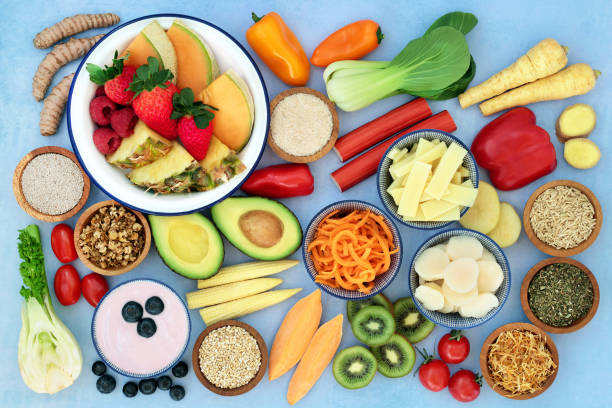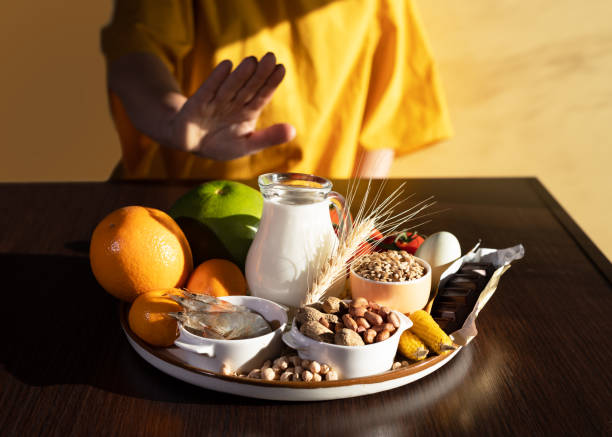Irritable Bowel Syndrome (IBS) is a common digestive disorder that affects millions of people worldwide. Symptoms include bloating, abdominal pain, diarrhea, constipation, and gas. While IBS cannot be cured, the right IBS diet can help reduce symptoms and improve quality of life. This article explains the best foods for IBS, foods to avoid, and diet chart, one of the most effective nutritional approaches for managing IBS.
What is an IBS Diet?
An IBS diet is a personalized eating plan designed to minimize triggers that cause digestive discomfort. Since IBS symptoms vary from person to person, diet adjustments often involve trial and error. However, research shows that certain diets, particularly the low FODMAP diet, are highly effective in controlling IBS symptoms.
Benefits of an IBS Diet:
- Reduces bloating and gas by avoiding trigger foods.
- Improves digestion and supports a healthier gut.
- Promotes regular bowel movements, helping with constipation or diarrhea.
- Relieves abdominal pain and discomfort.
- Decreases stress on the digestive system through mindful food choices.
- Supports balanced nutrition with gut-friendly foods.
- Enhances quality of life by minimizing daily IBS symptoms.
- Helps identify personal food triggers with structured diets.
- Lowers risk of flare-ups by maintaining dietary consistency.
- Boosts energy levels by improving nutrient absorption.
Foods to Eat In IBS Diet:
These foods are generally well-tolerated and can help reduce bloating, gas, and discomfort:
- Proteins: Eggs, chicken, turkey, fish, lean beef, firm tofu
- Grains & Starches: White rice, oats, quinoa, gluten-free bread, rice cakes, pasta (gluten-free)
- Fruits: Bananas (ripe), blueberries, strawberries, grapes, oranges, kiwi, pineapple
- Vegetables: Carrots, zucchini, cucumber, spinach, bell peppers, lettuce, green beans
- Dairy Alternatives: Lactose-free milk, almond milk, rice milk, lactose-free yogurt
- Snacks & Extras: Plain popcorn (unsalted), rice crackers, olive oil, small portions of peanut butter
- Drinks: Water, peppermint tea, ginger tea, chamomile tea
Foods to Avoid in IBS Diet:
These foods are common IBS triggers and may worsen bloating, diarrhea, or constipation:
- Vegetables: Onions, garlic, cauliflower, broccoli, cabbage, mushrooms
- Fruits: Apples, pears, watermelon, mangoes, cherries, dried fruits
- Legumes: Beans, lentils, chickpeas, soybeans
- Dairy Products: Milk, soft cheese, cream, ice cream, yogurt (with lactose)
- Grains: Wheat, rye, barley (bread, pasta, cereals)
- Snacks & Processed Foods: Chips, fried foods, processed meats, artificial sweeteners (sorbitol, mannitol, xylitol)
- Drinks: Carbonated sodas, alcohol, energy drinks, excess coffee
Sample IBS Diet Meal Plan:
Breakfast:
- Oatmeal with blueberries and chia seeds
- Herbal tea (peppermint)
Lunch:
- Grilled chicken with white rice
- Steamed carrots and zucchini
- Orange slices
Snack
- Rice cakes with peanut butter (small amount)
- Lactose-free yogurt
Dinner:
- Baked salmon with mashed potatoes
- Steamed spinach
- Ginger tea
Tips for Following an IBS Diet:
- Keep a food diary to track symptoms and trigger foods.
- Eat smaller, frequent meals instead of large ones.
- Limit caffeine and alcohol to avoid gut irritation.
- Stay hydrated with water, not carbonated drinks.
- Adjust fiber intake based on IBS type (C or D).
- Manage stress with yoga, meditation, or deep breathing.
- Eat slowly and chew thoroughly to aid digestion.
- Cook vegetables instead of eating them raw.
Conclusion:
The IBS diet is not one-size-fits-all—it depends on your triggers, symptoms, and lifestyle. The IBS diet is often the most effective approach, but other strategies like gluten-free, high-fiber, or low-fiber diets can also help. By identifying trigger foods, eating gut-friendly meals, and adopting healthy habits, you can take control of IBS symptoms and improve your quality of life.
FAQ:
Q. Is coffee allowed on an IBS diet?
A. Coffee may trigger IBS symptoms due to caffeine. Decaf coffee or herbal teas are better alternatives.
Q. Can IBS patients eat dairy products?
A. Many IBS patients are lactose intolerant. Choose lactose-free or plant-based alternatives like almond or rice milk.
Q. Is a low FODMAP diet permanent?
A. No. It’s a temporary elimination diet followed by a reintroduction phase to identify specific triggers.
Q. Are probiotics helpful for IBS?
A. Yes, some probiotics may improve gut health and reduce bloating, but results vary. Consult your doctor.
Q. What is the best diet for IBS?
A. The best diet is individualized. The low FODMAP diet works for most, but keeping a food diary helps personalize your plan.

